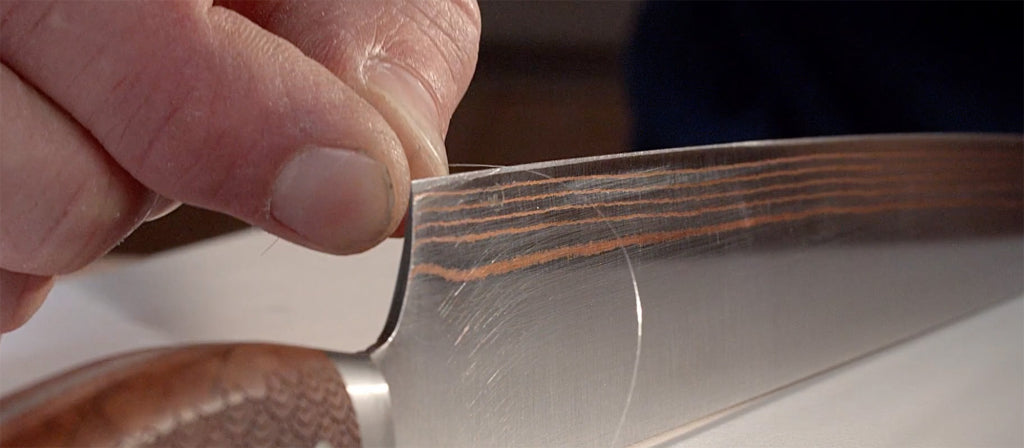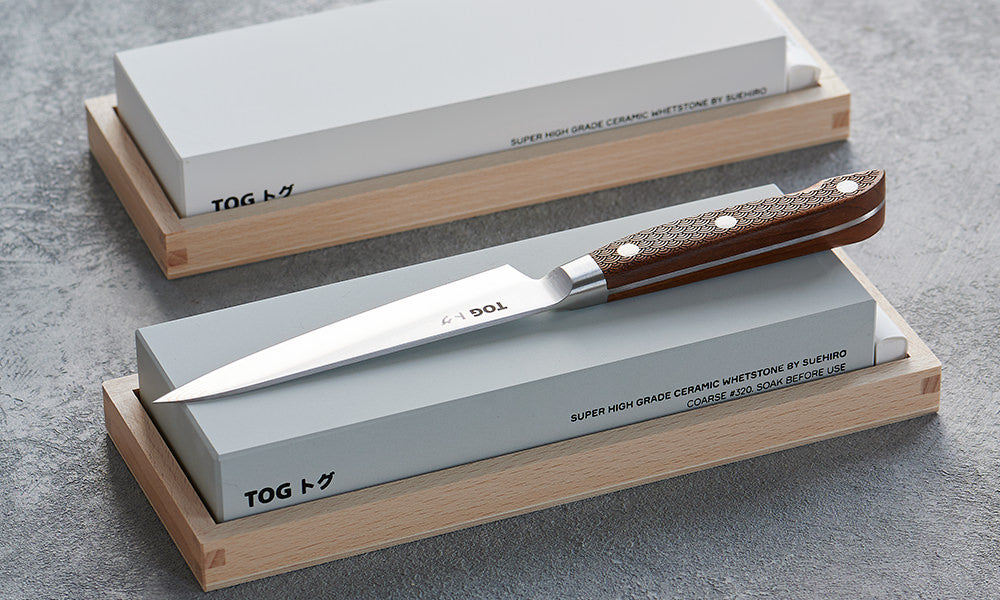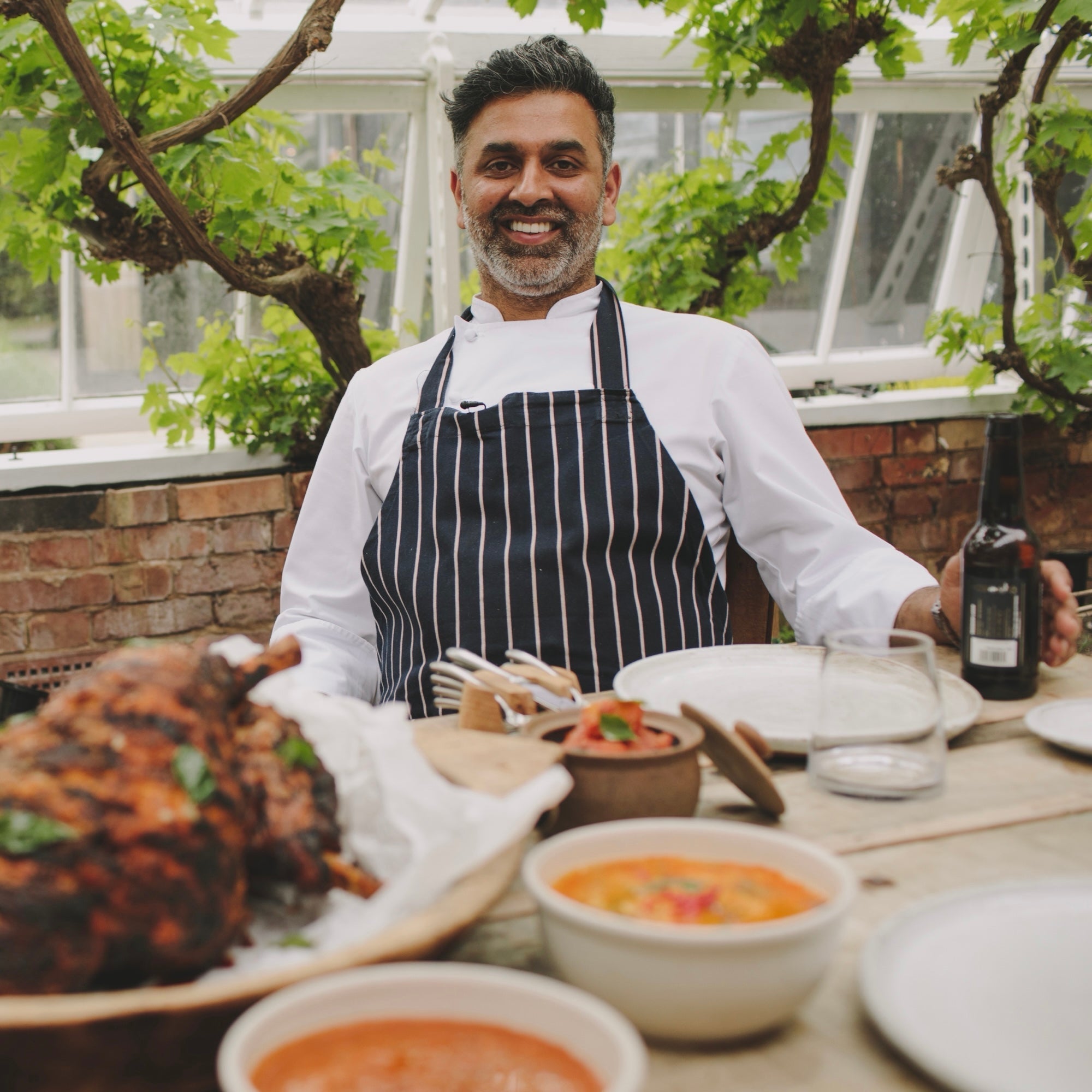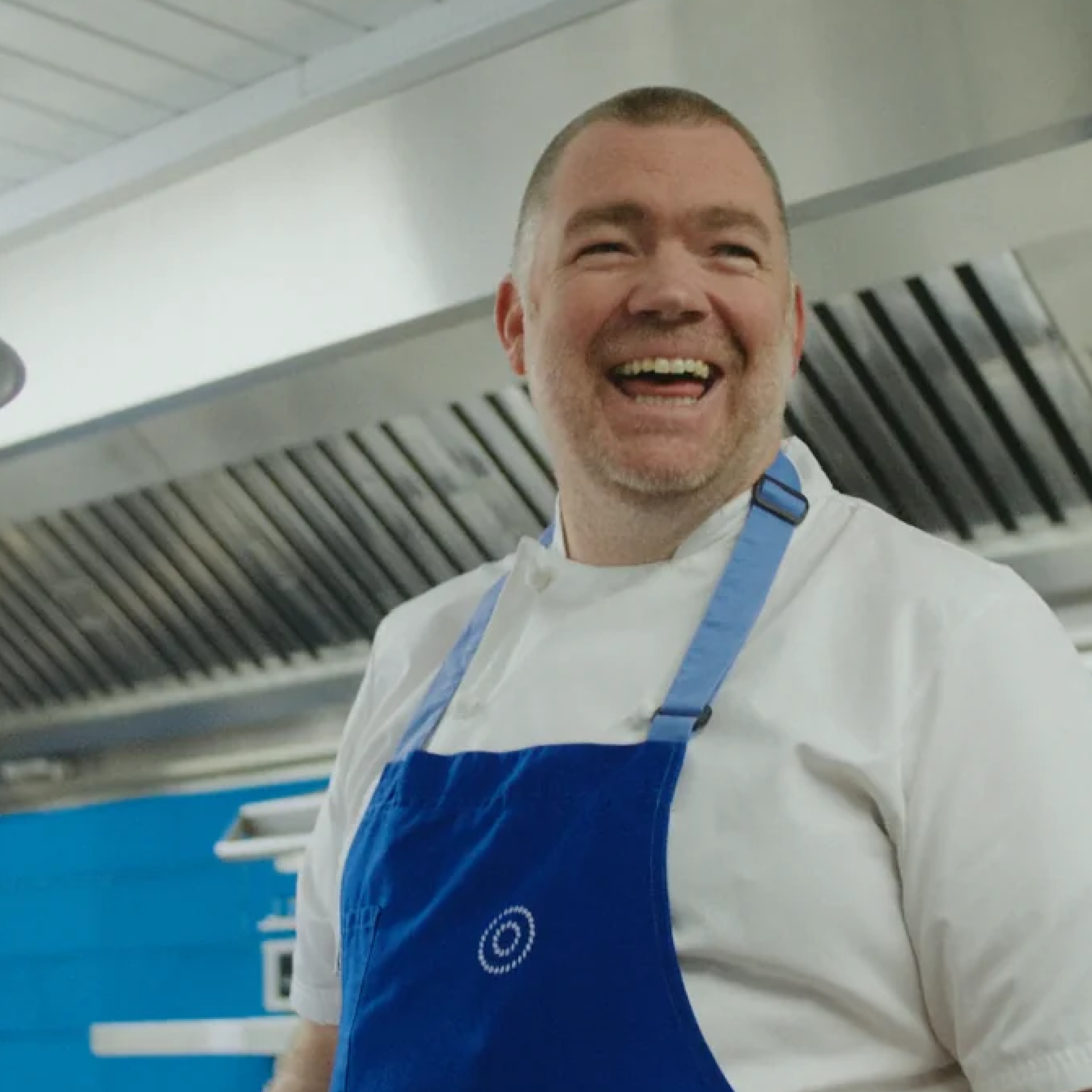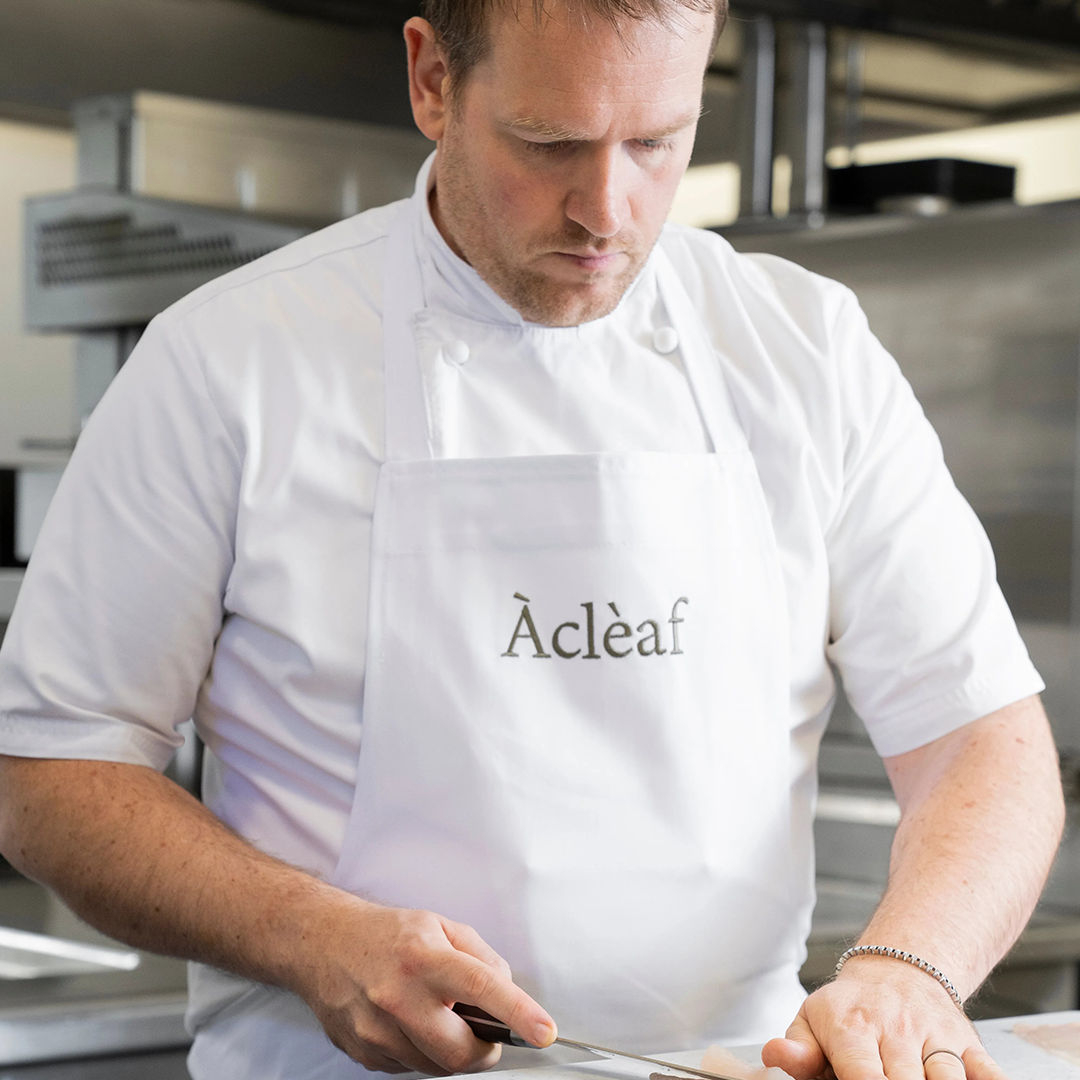Knowing how sharp a knife is will tell you whether you need to sharpen it. It’s also important during the actual sharpening process. Especially when you’re learning, you need to be able to check whether each stage in the process ("progression") has worked properly. The knife needs to reach a certain sharpness before moving on to the next stage.
There are 3 things that determine how sharp a knife is. Firstly, the edge quality of the knife (i.e. how rounded and/or damaged the edge has become). Secondly, the edge angle (the angle the knife is sharpened at). The smaller the edge angle, the sharper the knife. Thirdly, how thin the knife blade is. The apex of the blade initiates the cut, but after that the ‘blade geometry’ dictates how easily the rest of the blade will go through the food. For example, you might have two knives that both shave hair off your arm but one of them will be thinner, gliding through a potato, whereas the other thicker blade struggles to get through. Taking it to an extreme, an axe can be razor sharp but you can't cleanly cut a raw potato with it because it’ll be trying to cleave (push) the two halves apart.
You can actually ‘thin’ a knife blade so that it cuts better and at TOG we can do this for you via our knife sharpening service if required. Sometimes a knife that’s been sharpened over and over again gets thicker and needs thinning.
THE TOG REALLY USEFUL SCALE OF SHARPNESS
There are actually three different scientific scales for sharpness, invented by boffins. These are called “Edge Apex Thickness”, "Brubacher Edge Sharpness Scale” and “Razor Edge Sharpness Tester”.
Proper knife nerds have semi-official sharpness levels such as “nuts sharp” and “scary sharp” and “crazy sharp”.
However, at TOG we think these are over-complex for general kitchen use so we've created our own simplified scale with 5 basic levels. Each of these corresponds to a different stage of the whetstone sharpening process ("progression"):
1. DULL
This knife won’t cut paper and will skate over your fingernail.
Dangerous and frustrating.
2. SHARP
Achieved with coarse whetstone #320 grit.
Will cut printer paper and won’t skate over your fingernail.
Will cut newspaper with difficulty.
3. REALLY SHARP
Achieved with medium whetstone #1000.
Cuts printer paper smoothly, cuts newspaper with some difficulty.
4. REALLY, REALLY SHARP
Achieved with fine whetstone #4000 grit.
Perfect for general food prep.
Will cut newspaper very smoothly.
The edge you'll find on a brand new TOG knife.
5. SHAVING SHARP
Achieved with clean Belgian Blue whetstone #10,000 grit or leather strop.
You can shave hair off your arm.
Perfect for sushi.
You don’t need it this sharp.
The above assumes that the burr produced by the whetstone has been removed and that a honing rod has not been used after the stone. Using a TOG Ceramic Honing Rod (#2000 grit) after a coarse or medium whetstone will make the knife sharper. Using it after a fine or polishing stone will make it less sharp.
TESTS FOR SHARPNESS
Have a go with the following methods and see which you get on with:
FINGERNAIL TEST 1
If a knife will skate over your thumbnail then it's 'blunt' and you need to put a new edge on it. If it digs in, then it has at least a basic level of sharpness.
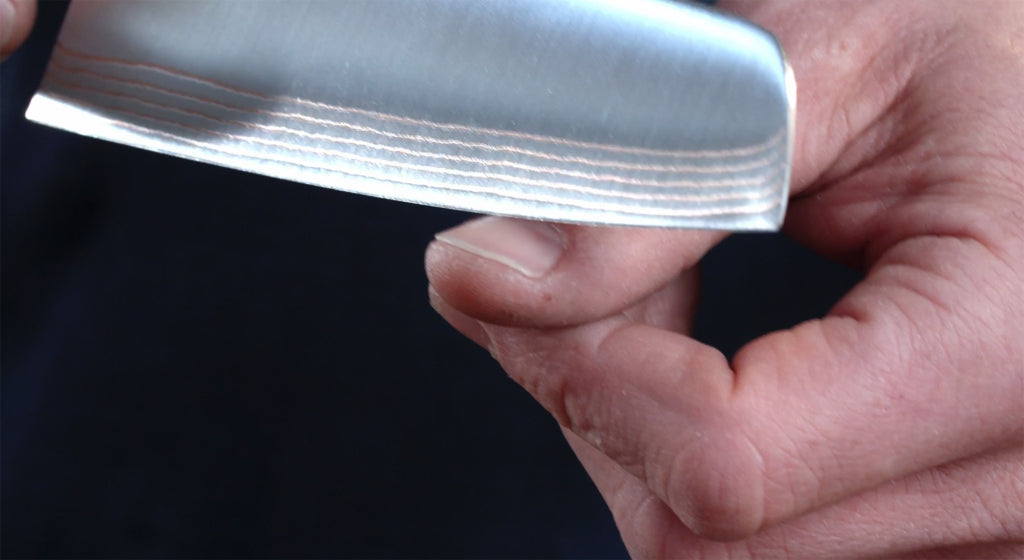
FINGERNAIL TEST 2
This is really a test for damage rather than sharpness. Run the very edge of your fingernail along the entire length of the cutting edge to feel for chips. If you’re sharpening a chipped knife with a coarse stone, stay on the coarse stone until you can't feel any chips at all before moving onto a medium.
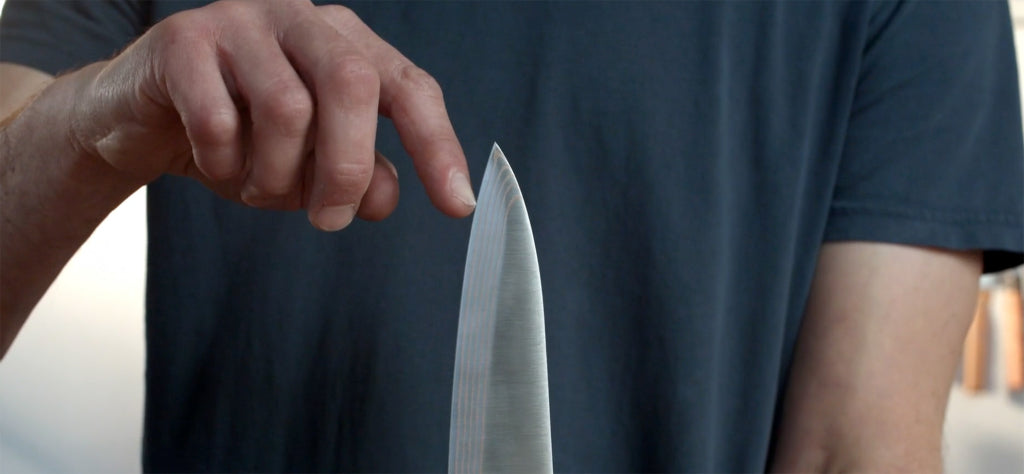
EXAMINATION UNDER BRIGHT LIGHT
Turn the knife so the cutting edge is facing upwards and have a close look under a bright light. Little bits get bent over or chipped off during normal use. This lets you see them as bright, glinting spots.
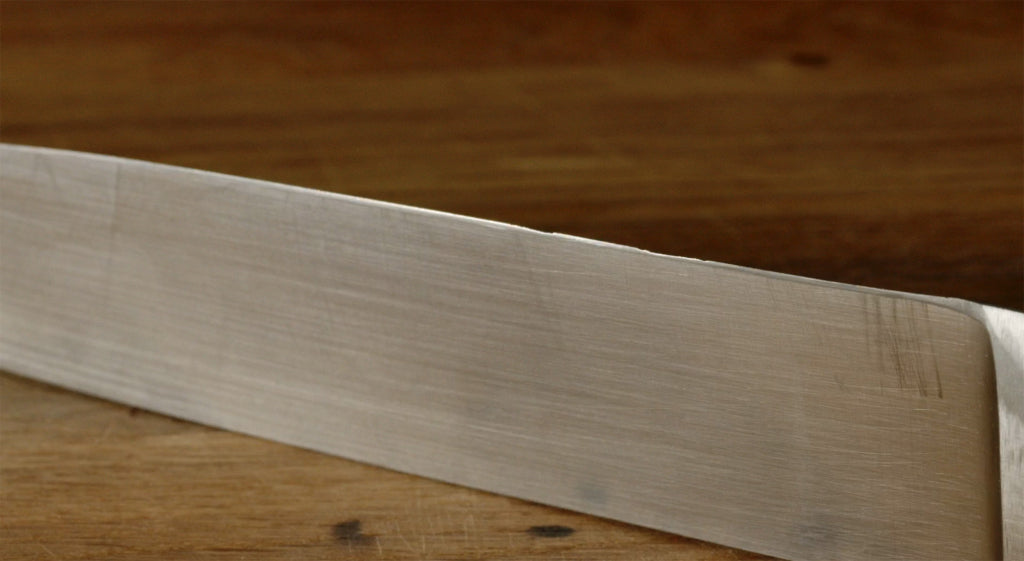
PAPER CUTTING
With some experience, cutting paper will tell you how sharp a knife is. The thicker the paper, the easier it is to cut. Standard copy paper can be cut by a 'sharp' knife (straight off a coarse whetstone). Newspaper is thinner and a 'very sharp' knife will cut this (after a medium whetstone) with some difficulty. If you can cut newspaper very smoothly, then you're good to go. Toilet paper and kitchen towel are very fibrous and incredibly hard to cut - you may need a 'toothy' edge for this.

PUSH CUT TEST
This involves cutting paper by pushing straight down, without slicing (forward or back) as you go. However, this test is not totally consistent as it depends on how close to your fingers you are cutting and also what type of paper you’re using. Your knife needs to be "very, very sharp" to pass this test. Remember thinner paper is harder to cut.
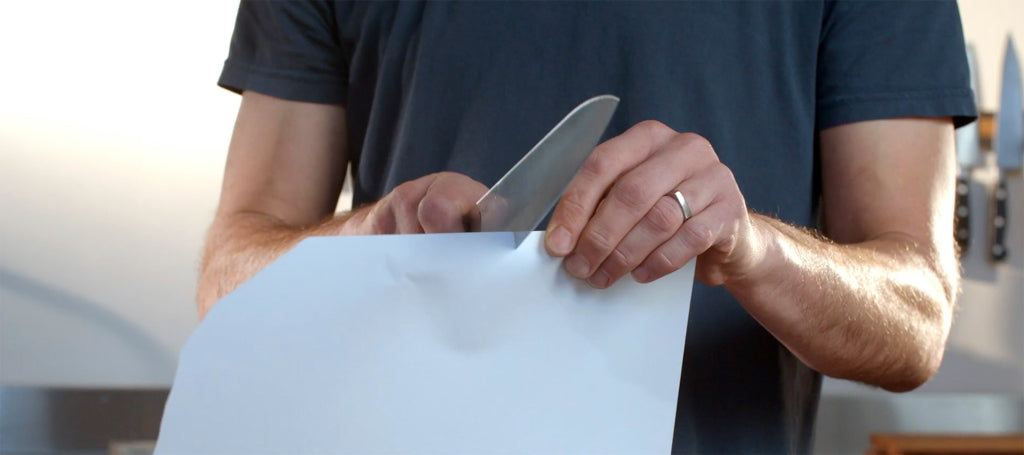
TOMATO TEST
A very popular test but not one we recommend. A sharp knife will slice a new tomato easily. However, old tomatoes are incredibly hard to cut with any knife and the tiny serrations of a technically less sharp knife might actually help cut the tomato by breaking into the skin.

SHAVING TEST
I use this test to check if I’ve finished sharpening a knife. Run the knife along your arm with the blade at a shallow angle and touching the skin. Hairs on the blade mean you’ve passed the test.
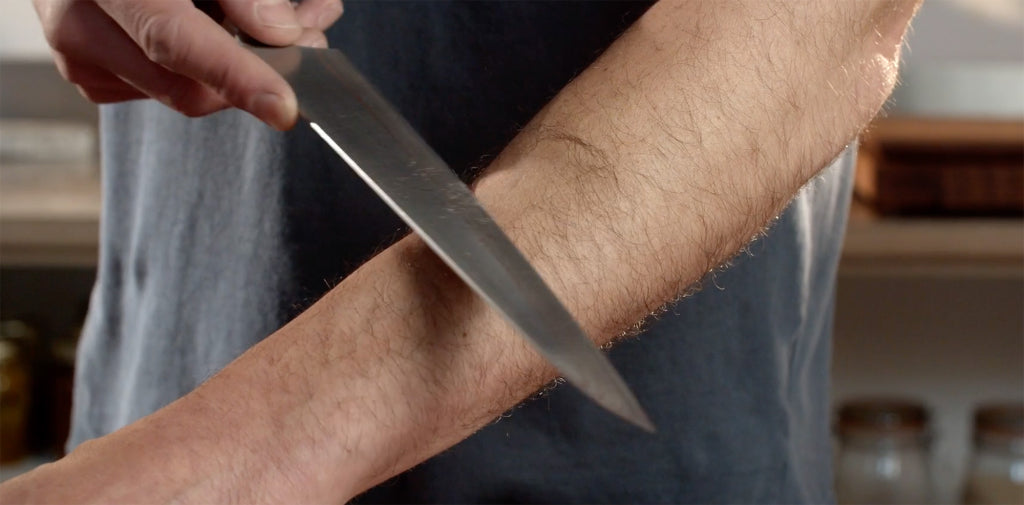
HANGING HAIR TEST
The ultimate test for sharpness! Put the knife upside down with the cutting edge facing up. Holding a hair at a distance from the blade, lower it down until it touches the blade and it will be cut. This edge can be achieved with a fine strop. You are a true sharpening ninja if you can pass this test.
